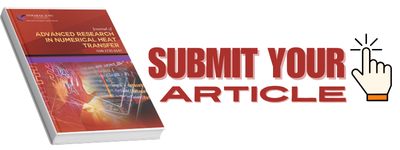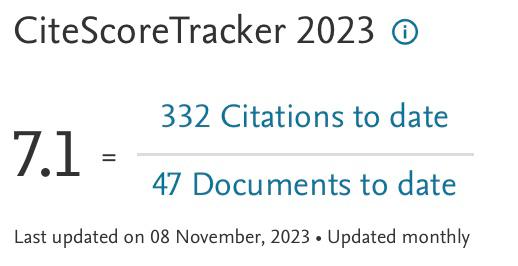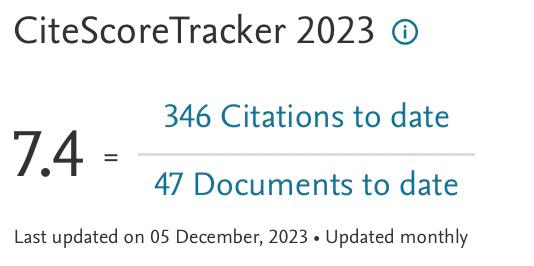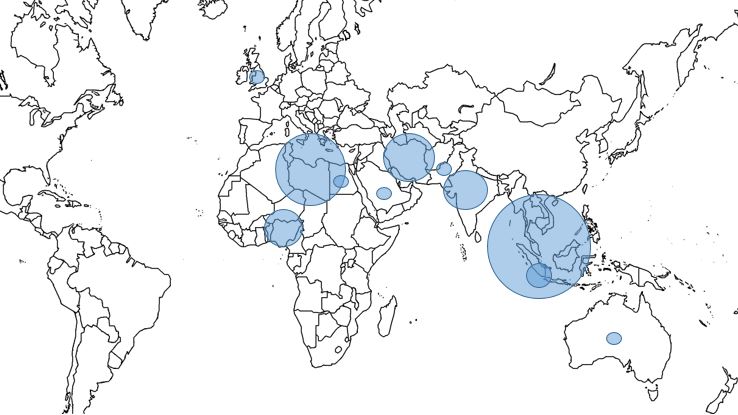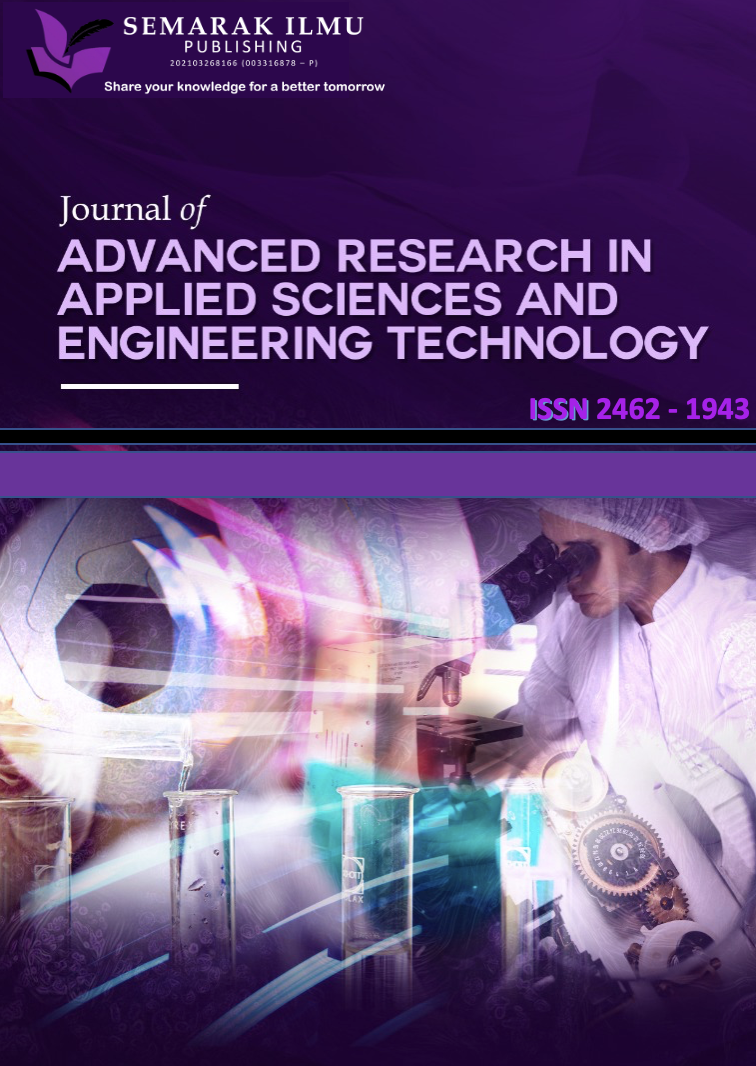A Transient Heat Transfer Analysis of Thermal Necrosis-Aided Dental Implant Removal
DOI:
https://doi.org/10.37934/arnht.20.1.1322Keywords:
Dental implant, Finite element analysis;, Heat transfer, Power output, Thermal necrosis, TransientAbstract
A prevalent and widely favoured solution for replacing lost teeth is the use of dental implants. The removal of dental implants, even when they are osseointegrated but unsuccessful, can be traumatic, resulting in the loss of healthy bone and adding complexity to the treatment procedure. Reducing the trauma associated with implant removal can be achieved by intentionally weakening the bone-implant attachment. To achieve this objective, a suggested approach involves utilising thermal necrosis to aid in the minimally invasive removal of implants. The objective of this study was to use finite element analysis to explore the optimal power output for intentionally inducing thermal necrosis in a dental implant. SolidWorks software was utilised to create a three-dimensional model of a dental implant assembly, which includes an abutment, screw, and implant body integrated into a segment of mandibular bone. The model was subsequently analysed using ANSYS software, applying device powers ranging from 5 to 40 W in 5 W increments on the top surface of the abutment. The results of the study showed that there was a considerable elevation in the temperatures of the bone and implant, even when employing the low power settings commonly used in electrosurgical procedures. Elevating the power level has led to a decrease in the time required for the bone and implant to reach 47°C, the initial temperature at which bone necrosis occurs. However, it is crucial to take into account the significant temperature rise in the implant body at higher power levels. The implementation of lower power settings could present a viable approach to achieving controlled osteonecrosis.
Downloads
References
Dhok, Kanad, Adhikari, Mihir, Palange, Atul, and Dhatrak, Pankaj. "Heat generation during implant site preparation and its effects on osseointegration: A review." Materials Today: Proceedings 72, no. 3 (2023): 1035-1040. https://doi.org/10.1016/j.matpr.2022.09.157
koutiech, Tammam, Ahmad heshmeh, Omar, Alkerdi, Kamal, Toumi, Johnny, and Al sabek, Laith. "Comparison of maximum heat generation during implant site preparation between single and gradual drilling protocols in artificial D1 bone blocks: An in vitro study." International Journal of Dentistry 2022 (2022): 9370395. https://doi.org/10.1155/2022/9370395
Chou, Hsuan-Yu, Jagodnik, John J., and Müftü, S. "Predictions of bone remodeling around dental implant systems." Journal of Biomechanics 41, no. 6 (2008): 1365-1373. https://doi.org/10.1016/j.jbiomech.2008.01.032
Baqain, Z. H., Moqbel, W. Y., and Sawair, F. A. "Early dental implant failure: Risk factors." British Journal of Oral and Maxillofacial Surgery 50, no. 3 (2012): 239-43. https://doi.org/10.1016/j.bjoms.2011.04.074
Shemtov-Yona, Keren and Rittel, Daniel. "An overview of the mechanical integrity of dental implants." BioMed Research International 2015 (2015): 547384. https://doi.org/10.1155/2015/547384
Hanif, Ayesha, Saima Qureshi, Zeeshan Sheikh, and Haroon Rashid. "Complications in implant dentistry." European journal of dentistry 11, no. 01 (2017): 135-140. https://doi.org/10.4103/ejd.ejd_340_16
Misch, Carl E., Morton L. Perel, Hom-Lay Wang, Gilberto Sammartino, Pablo Galindo-Moreno, Paolo Trisi, Marius Steigmann et al. "Implant success, survival, and failure: the International Congress of Oral Implantologists (ICOI) pisa consensus conference." Implant dentistry 17, no. 1 (2008): 5-15. https://doi.org/10.1097/ID.0b013e3181676059
Stajčić, Z., LJ Stojčev Stajčić, M. Kalanović, A. Đinić, N. Divekar, and M. Rodić. "Removal of dental implants: review of five different techniques." International journal of oral and maxillofacial surgery 45, no. 5 (2016): 641-648. https://doi.org/10.1016/j.ijom.2015.11.003
Cunliffe, Joanne and Barclay, Craig. "Removal of a dental implant: An unusual case report." Journal of Dental Implants 1, no. 1 (2011): 22. https://doi.org/10.4103/0974-6781.76428
Eriksson, A. R., and T. Albrektsson. "Temperature threshold levels for heat-induced bone tissue injury: a vital-microscopic study in the rabbit." The Journal of prosthetic dentistry 50, no. 1 (1983): 101-107. https://doi.org/10.1016/0022-3913(83)90174-9
Aquilanti, Luca, Antognoli, Luca, Rappelli, Giorgio, Di Felice, Roberto, and Scalise, Lorenzo. "Heat generation during initial osteotomy for implant site preparation: An in vitro measurement study." Journal of Maxillofacial and Oral Surgery 22, no. 2 (2023): 313-320. https://doi.org/10.1007/s12663-022-01800-8
Lekholm, U. Z. G. A. "Patient selection and preparation." Tissue integrated prothesis (1985): 199-209.
Prabhu, Nayana, Krishna Kumar, Ritesh Bhat, Vathsala Patil, Suhas Kowshik, Utkarsh Swain, Gautam Jaladi, and Abhilash Agarwal. "Thermal Necrosis Assisted Dental Implant Removal: A 3-Dimensional Finite Element Analysis." Engineered Science 19 (2022): 225-235. https://doi.org/10.30919/es8d706
Gungormus, Mustafa and Erbasar, Guzin Neda Hasanoglu. "Transient heat transfer in dental implants for thermal necrosis-aided implant removal: A 3D finite element analysis." Journal of Oral Implantology 45, no. 3 (2019): 196-201. https://doi.org/10.1563/aaid-joi-D-18-00210
Ormianer, Zeev, Feuerstein, Osnat, Assad, Rawi, Samet, Nachum, and Weiss, Ervin Itzhak. "In vivo changes in dental implant temperatures during hot beverage intake: A pilot study." Implant Dentistry 18, no. 1 (2009): 38-45. https://doi.org/10.1097/ID.0b013e318192e143
Panotopoulos, Grigorios P., and Ziyad S. Haidar. "Thermal Load and Heat Transfer in Dental Titanium Implants: An Ex Vivo-Based Exact Analytical/Numerical Solution to the ‘Heat Equation’." Dentistry Journal 10, no. 3 (2022): 43. https://doi.org/10.3390/dj10030043
Wilcox, Charles W., Terry M. Wilwerding, Patrice Watson, and Jason T. Morris. "Use of electrosurgery and lasers in the presence of dental implants." International Journal of Oral & Maxillofacial Implants 16, no. 4 (2001).
Rios, F. G., E. R. Viana, G. M. Ribeiro, J. C. González, A. Abelenda, and D. C. Peruzzo. "Temperature evaluation of dental implant surface irradiated with high-power diode laser." Lasers in Medical Science 31 (2016): 1309-1316. https://doi.org/10.1007/s10103-016-1974-z
Massei, G. "Thermo‐explantation. A novel approach to remove osseointegrated implants." European Cells and Materials 7, no. 2 (2004): 48.
Worni, Andreas, Laurent Marchand, Irena Sailer, David Cornish, and Stefan Paul Hicklin. "Explantation of an Osseointegrated Titanium Implant Using Laser-Induced Thermo-necrosis: A Case Report." International Journal of Oral & Maxillofacial Implants 33, no. 6 (2018). https://doi.org/10.11607/jomi.6898








